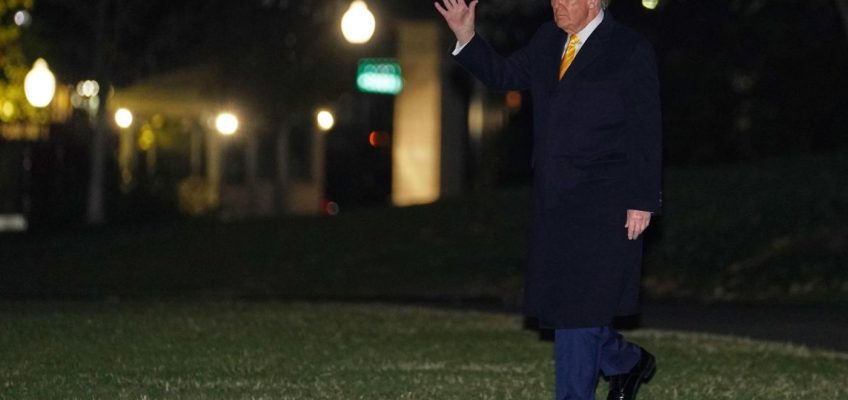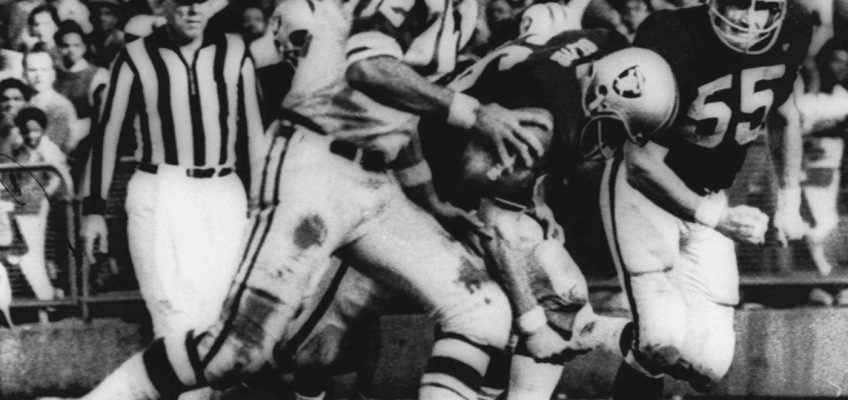By JOSH BOAK, Associated Press
WASHINGTON (AP) — More people are falling behind on paying their bills to keep on the lights and heat their homes, according to a new analysis of consumer data — a warning sign for the U.S. economy and another political headache for President Donald Trump.
Related Articles
Today in History: November 17, the NFL’s infamous ‘Heidi Game’
Trump’s Republican Party insists there’s no affordability crisis and dismisses election losses
Today in History: November 16, Pakistan elects first woman prime minister
Today in History: November 15, Protesters march against Vietnam War
Disney reaches new deal with YouTube TV, ending a blackout that lasted over two weeks
Past due balances to utility companies jumped 9.7% annually to $789 between the April-June periods of 2024 and 2025, said The Century Foundation, a liberal think tank. The increase has overlapped with a 12% jump in monthly energy bills during the same period.
Consumers usually prioritize their utility bills along with their mortgages and auto debt, said Julie Margetta Morgan, the foundation’s president. The increase in both energy costs and delinquencies may suggest that consumers are falling behind on other bills, too.
“There’s a lot of information out there about rising utility costs, but here we can actually look at what that impact has been on families in terms of how they’re falling behind,” Margetta Morgan said.
Troubles paying electricity and natural gas bills reflect something of an economic quandary for Trump, who is promoting the buildout of the artificial intelligence industry as a key part of an economic boom he has promised for America. But AI data centers are known for their massive use of electricity, and threaten to further increase utility bills for everyday Americans.
These troubles also come as Trump faces political pressure from voters fed up with the high cost of living.
Ever since Republicans saw their fortunes sag in off-year elections this month and affordability was identified as the top issue, Trump has been trying to convince the public that prices are falling. Fast-rising electricity bills could be an issue in some congressional battlegrounds in next year’s midterm elections.
Trump has put a particular emphasis on prices at the pump. Gasoline accounts for about 3% of the consumer price index, slightly less than the share belonging to electricity and natural gas bills — meaning that possible savings on gasoline could be more than offset by higher utility bills.
The president maintains that any troubling data on inflation is false and that Democrats are simply trying to hurt his administration’s reputation.
“In fact, costs under the TRUMP ADMINISTRATION are tumbling down, helped greatly by gasoline and ENERGY,” Trump posted on social media Friday. “Affordability is a lie when used by the Dems,”
Nearly 6 million households have utility debt “so severe” that it will soon be reported to collection agencies, according to the foundation’s analysis, drawn from the University of California Consumer Credit Panel.
During Trump’s first six months in office, there was a 3.8% increase in households with severely overdue utility bills.
“Voters are frustrated and families are hurting because these tech giants are cutting backroom deals with politicians, and it’s causing their power bills to go up,” said Mike Pierce, executive director of the advocacy group Protect Borrowers, which contributed to the analysis. “If the Trump administration doesn’t want to do its job and protect families and make life more affordable, I guess that’s its choice.”
Both Margetta Morgan and Pierce previously worked at the Consumer Financial Protection Bureau, a government agency formed in part to track trends in household borrowing to prevent potential abuses. The Trump administration has essentially shut down the bureau.
The administration has so far said it has no responsibility for any increases in electricity prices, since those are often regulated by state utility boards. The White House maintains that utility costs are higher in Democratic states that rely on renewable forms of energy.
“Electricity prices are a state problem,” Treasury Secretary Scott Bessent told ABC News this month. “There are things that the federal government can control. Local electricity prices are not one of them.”
The Century Foundation analysis counters that the Trump administration is contributing to higher utility costs “by impeding renewable energy generation” including solar and wind power.
While the new analysis is a warning sign, other economic analyses on consumers suggest their finances are stable despite some emerging pressures.
The New York Federal Reserve has said delinquency rates of 90 days or more for mortgages, auto loans and student debt have each increased over the past 12 months, though it said mortgage delinquencies are “relatively low.” An analysis of debit and credit card spending by the Bank of America Institute showed that consumers’ “overall financial health looks sound.”




